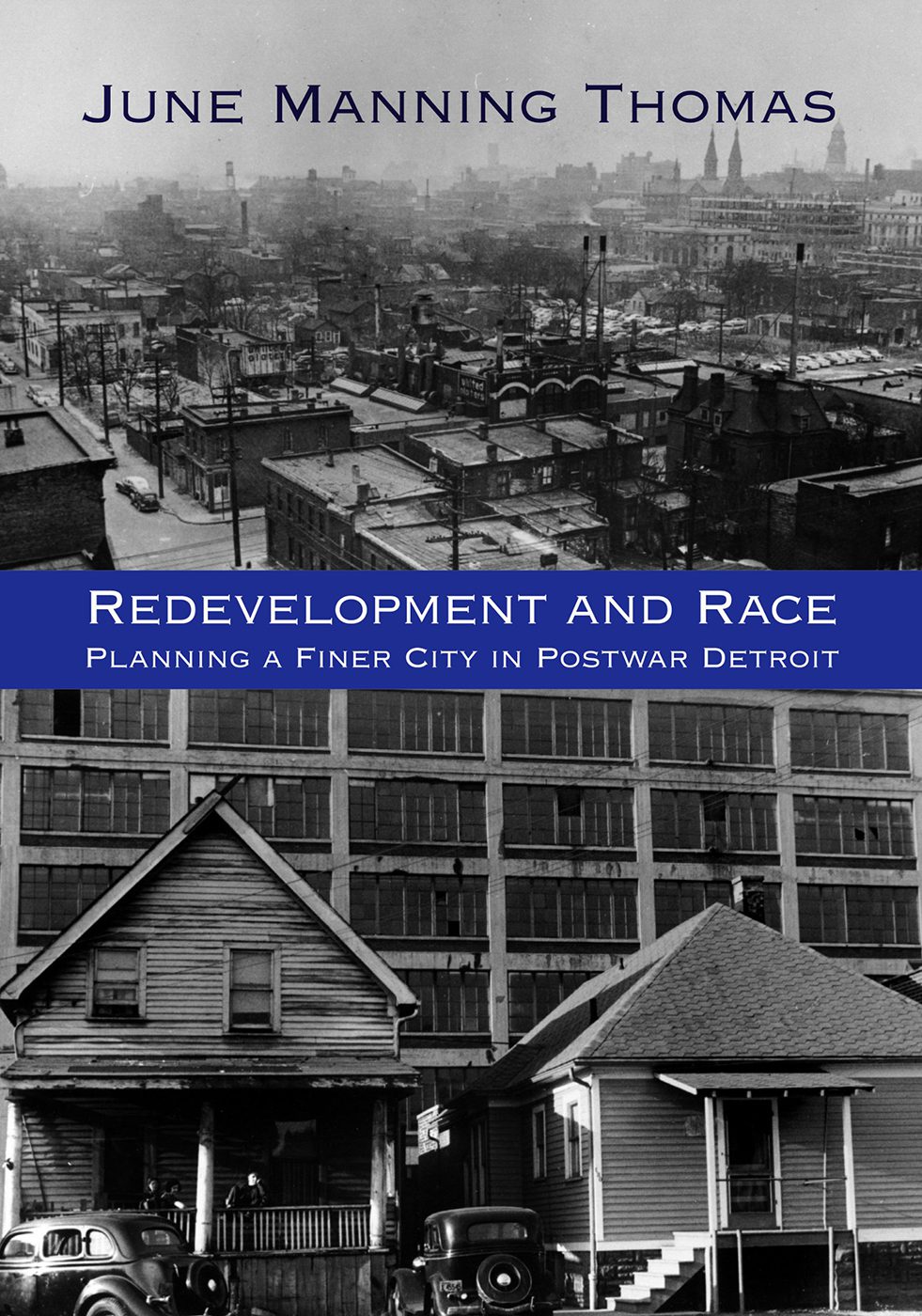This was the winner of the 1999 Paul Davidoff Award for best book in social justice and urban planning. It offers a history of the urban planning profession and its activities in the city of Detroit from the mid-1940s until the mid-1990s. It focuses in particular on the relationship between redevelopment activities and racial conflicts.
In the decades following World War II, professional city planners in Detroit made a concerted effort to halt the city’s physical and economic decline. Their successes included an award-winning master plan, a number of laudable redevelopment projects, and exemplary planning leadership in the city and the nation. Yet in those same decades, Detroit changed from a city that enjoyed livable neighborhoods, healthy commercial strips, a bustling downtown, and beautiful parks into the notorious symbol of urban decay that it is today.
This book demonstrates how and why government programs were ineffective and even destructive to community needs, as well as how social striving and class disunity added a further difficult to their implementation. Thomas argues for a different approach to traditional planning: one that places social justice, equity, and community ahead of purely physical and economic objectives. A unique historical analysis of the interaction of redevelopment and racial issues in one city, this book offers an important contribution to both planning history and urban studies.

